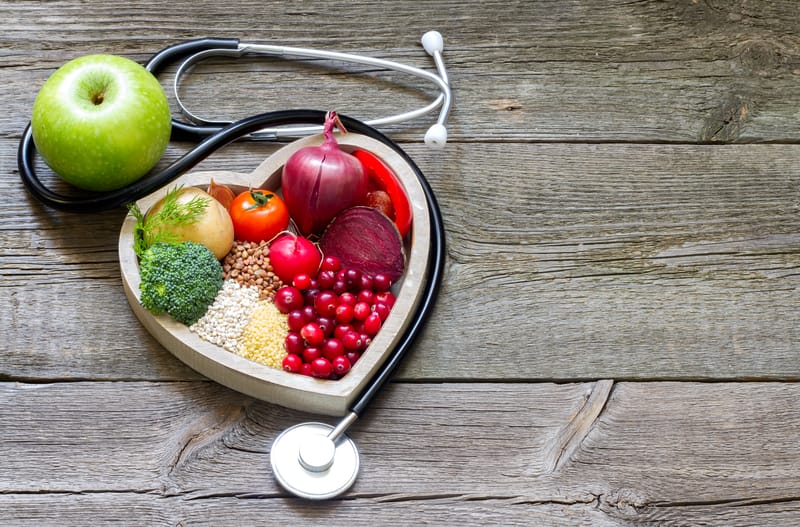The ketogenic diet, commonly known as the keto diet, has become a popular approach for weight loss and improving overall health. This high-fat, low-carb diet shifts the body into a state of ketosis, where it burns fat for fuel instead of carbohydrates. While many people have successfully lost weight on the keto diet, some are concerned about its impact on cholesterol levels.
In this comprehensive guide, we’ll explore how the keto diet affects cholesterol and provide practical tips on how to lower your cholesterol while staying on the keto diet.
Understanding Cholesterol and Its Importance
Before diving into the keto diet’s specifics, it’s essential to understand what cholesterol is and why it matters.
What is Cholesterol?
Cholesterol is a waxy substance found in your blood. It’s essential for building cells and producing certain hormones. Cholesterol is carried through your bloodstream by lipoproteins, which come in two primary forms:
- Low-Density Lipoprotein (LDL): Often referred to as “bad” cholesterol, LDL can build up in the walls of your arteries, leading to blockages and increasing the risk of heart disease.
- High-Density Lipoprotein (HDL): Known as “good” cholesterol, HDL helps remove LDL from your arteries, reducing the risk of heart disease.

How the Keto Diet Affects Cholesterol Levels
The keto diet’s impact on cholesterol levels can vary from person to person. Here’s how it works:
Increased Fat Intake
The keto diet encourages a high intake of fats, including saturated fats found in meat, butter, and cheese. Some studies suggest that consuming too much saturated fat can increase LDL cholesterol levels, which may raise the risk of heart disease. However, not all fats are created equal. Healthy fats, such as those found in avocados, nuts, and olive oil, can positively affect cholesterol levels.
Reduction in Carbohydrates
By significantly reducing carbohydrate intake, the keto diet may lower triglyceride levels (a type of fat in your blood). High triglycerides are often associated with an increased risk of heart disease.
Individual Variability
It’s essential to note that the keto diet’s impact on cholesterol varies among individuals. Some people may experience a significant increase in LDL cholesterol, while others may see no change or even a decrease.
Tips for Lowering Cholesterol on a Keto Diet
If you’re concerned about your cholesterol levels while following a keto diet, there are several strategies you can implement to manage and lower your cholesterol effectively.
1. Focus on Healthy Fats
Not all fats are harmful to your cholesterol levels. While the keto diet encourages a high intake of fats, it’s crucial to focus on healthy fats that can positively impact your cholesterol.
Healthy Fats to Include:
- Monounsaturated Fats: Found in avocados, olive oil, and nuts, these fats can help reduce LDL cholesterol and increase HDL cholesterol.
- Polyunsaturated Fats: Found in fatty fish (such as salmon and mackerel), walnuts, and flaxseeds, these fats can lower LDL cholesterol and are beneficial for heart health.
- Omega-3 Fatty Acids: Omega-3s are a type of polyunsaturated fat found in fish oil and certain plant oils. They can help reduce triglycerides and improve heart health.
Fats to Limit:
- Saturated Fats: Found in red meat, butter, and cheese, saturated fats can raise LDL cholesterol levels in some people. While you don’t need to eliminate them entirely, it’s wise to consume them in moderation.
- Trans Fats: Found in some processed foods, trans fats are particularly harmful and can raise LDL cholesterol while lowering HDL cholesterol. Avoid trans fats as much as possible.
2. Incorporate Fiber-Rich Foods
Fiber is essential for maintaining healthy cholesterol levels, and while the keto diet is low in carbs, there are still ways to include fiber-rich foods in your meals.
Benefits of Fiber:
- Soluble Fiber: This type of fiber can help reduce LDL cholesterol by binding to cholesterol particles in the digestive system and removing them from the body. Foods like flaxseeds, chia seeds, and avocados are good sources of soluble fiber.
- Insoluble Fiber: While not directly linked to lowering cholesterol, insoluble fiber is important for digestive health and can help you feel full, making it easier to stick to your keto diet.
Fiber-Rich Foods to Include:
- Non-Starchy Vegetables: Leafy greens, broccoli, cauliflower, and zucchini are low in carbs and high in fiber.
- Seeds: Flaxseeds, chia seeds, and psyllium husk are excellent sources of fiber and can be easily added to smoothies, yogurt, or keto-friendly baked goods.
- Nuts: Almonds, walnuts, and other nuts provide both healthy fats and fiber.
3. Stay Active with Regular Exercise
Exercise is a powerful tool for managing cholesterol levels and overall heart health. Combining a keto diet with regular physical activity can help improve your cholesterol profile.
Benefits of Exercise:
- Increases HDL Cholesterol: Regular aerobic exercise, such as walking, running, or cycling, can raise HDL cholesterol levels, which helps remove LDL cholesterol from your arteries.
- Lowers LDL Cholesterol and Triglycerides: Exercise can also help lower LDL cholesterol and triglyceride levels, reducing the risk of heart disease.
Types of Exercise to Include:
- Aerobic Exercise: Aim for at least 150 minutes of moderate-intensity aerobic exercise per week, such as brisk walking, swimming, or cycling.
- Strength Training: Incorporating strength training exercises, such as weight lifting, can also improve your cholesterol levels and overall health.
- Flexibility and Balance Exercises: Activities like yoga and stretching can enhance your overall fitness and well-being.
4. Monitor Your Cholesterol Levels
Regular monitoring of your cholesterol levels is crucial, especially when following a keto diet. This allows you to track changes and make adjustments to your diet and lifestyle as needed.
When to Check Cholesterol:
- Before Starting the Keto Diet: It’s a good idea to get a baseline measurement of your cholesterol levels before starting the keto diet.
- After 3-6 Months: Check your cholesterol levels after three to six months of following the keto diet to assess how it’s affecting your lipid profile.
- Regularly Thereafter: Continue to monitor your cholesterol levels at least once a year, or more frequently if recommended by your healthcare provider.

What to Look For:
- Total Cholesterol: Aim for a total cholesterol level of less than 200 mg/dL.
- LDL Cholesterol: Aim for an LDL cholesterol level of less than 100 mg/dL.
- HDL Cholesterol: Aim for an HDL cholesterol level of 60 mg/dL or higher.
- Triglycerides: Aim for a triglyceride level of less than 150 mg/dL.
5. Consider Supplements
Certain supplements may help manage cholesterol levels on a keto diet. However, it’s essential to consult with your healthcare provider before adding any supplements to your regimen.
Supplements to Consider:
- Fish Oil: Rich in omega-3 fatty acids, fish oil can help lower triglycerides and improve heart health.
- Plant Sterols and Stanols: These naturally occurring substances can help lower LDL cholesterol by blocking the absorption of cholesterol in the intestines.
- Niacin (Vitamin B3): Niacin can help lower LDL cholesterol and triglycerides while raising HDL cholesterol. However, it should be used under medical supervision due to potential side effects.
- Fiber Supplements: If you’re not getting enough fiber from your diet, a fiber supplement like psyllium husk can help lower LDL cholesterol.
6. Avoid Processed Keto Foods
The popularity of the keto diet has led to the availability of various processed keto-friendly foods. While convenient, these products often contain unhealthy fats, additives, and low-quality ingredients that can negatively impact your cholesterol levels.
Why Avoid Processed Keto Foods:
- Unhealthy Fats: Many processed keto foods contain high amounts of saturated fats and trans fats, which can raise LDL cholesterol.
- Additives and Preservatives: Processed foods often contain additives and preservatives that may not align with a heart-healthy diet.
- Low Nutrient Density: These foods are often low in essential nutrients and may not provide the fiber, vitamins, and minerals needed for optimal health.
What to Choose Instead:
- Whole Foods: Focus on whole, unprocessed foods such as fresh vegetables, lean proteins, and healthy fats.
- Homemade Meals: Preparing your meals at home allows you to control the ingredients and ensure you’re eating a heart-healthy diet.
7. Stay Hydrated
Proper hydration is essential for overall health and can support your efforts to maintain healthy cholesterol levels on a keto diet.
Benefits of Hydration:
- Supports Metabolism: Staying hydrated helps maintain your metabolism, which is essential for weight management and overall health.
- Aids Digestion: Proper hydration supports digestion and the absorption of nutrients, including healthy fats and fiber.
- Promotes Satiety: Drinking water before meals can help you feel full, reducing the likelihood of overeating.
Tips for Staying Hydrated:
- Drink Water Regularly: Aim for at least 8-10 glasses of water per day, and more if you’re physically active.
- Infuse Your Water: If you find plain water boring, try infusing it with slices of lemon, cucumber, or mint for added flavor.
- Limit Sugary Drinks: Avoid sugary drinks and sodas, as they can contribute to weight gain and negatively impact your cholesterol
levels.
8. Limit Alcohol Intake
While moderate alcohol consumption may have some benefits for heart health, excessive drinking can lead to increased cholesterol levels and other health issues.
Effects of Alcohol on Cholesterol:
- Increased Triglycerides: Excessive alcohol consumption can raise triglyceride levels, increasing the risk of heart disease.
- Weight Gain: Alcohol is calorie-dense and can contribute to weight gain, which may negatively affect your cholesterol levels.
- Liver Health: The liver plays a crucial role in managing cholesterol levels. Excessive alcohol consumption can impair liver function, leading to an imbalance in cholesterol levels.
How to Manage Alcohol Consumption:
- Moderation is Key: If you choose to drink alcohol, do so in moderation. This typically means no more than one drink per day for women and two drinks per day for men.
- Choose Heart-Healthy Options: If you drink alcohol, opt for red wine, which contains antioxidants like resveratrol that may support heart health. However, even red wine should be consumed in moderation.
- Be Mindful of Mixers: Avoid sugary mixers like soda or juice, as they can add unnecessary calories and sugar to your drink.
9. Maintain a Healthy Weight
Maintaining a healthy weight is crucial for managing cholesterol levels. While the keto diet is effective for weight loss, it’s essential to focus on sustainable, long-term weight management.
How Weight Affects Cholesterol:
- Increased LDL and Triglycerides: Being overweight or obese can lead to higher levels of LDL cholesterol and triglycerides, increasing the risk of heart disease.
- Improved Cholesterol with Weight Loss: Losing even a small amount of weight can positively impact your cholesterol levels and overall heart health.
Tips for Healthy Weight Management:
- Set Realistic Goals: Aim for gradual weight loss of 1-2 pounds per week. Rapid weight loss is not sustainable and can lead to muscle loss and other health issues.
- Practice Mindful Eating: Pay attention to hunger and fullness cues, and avoid eating out of boredom or stress.
- Incorporate Physical Activity: Regular exercise not only supports weight loss but also helps improve cholesterol levels.
10. Manage Stress
Chronic stress can negatively impact your cholesterol levels and overall health. Finding effective ways to manage stress is essential for maintaining a healthy heart.
How Stress Affects Cholesterol:
- Increased LDL Cholesterol: Chronic stress can lead to an increase in LDL cholesterol levels.
- Unhealthy Coping Mechanisms: Stress may lead to unhealthy coping behaviors, such as overeating, smoking, or drinking alcohol, which can negatively affect cholesterol levels.
Stress Management Techniques:
- Practice Relaxation Techniques: Deep breathing, meditation, and yoga are effective ways to reduce stress and promote relaxation.
- Stay Active: Physical activity is a natural stress reliever. Regular exercise can help reduce stress hormones and boost mood.
- Connect with Others: Spending time with family and friends or engaging in social activities can help reduce stress and improve overall well-being.
- Prioritize Sleep: Ensure you get enough quality sleep each night, as sleep is essential for managing stress and overall health.
Foods to Include on a Keto Diet to Support Heart Health
Incorporating heart-healthy foods into your keto diet can help lower cholesterol and improve overall cardiovascular health. Here are some foods to focus on:
1. Fatty Fish
- Why It’s Good: Fatty fish like salmon, mackerel, and sardines are rich in omega-3 fatty acids, which can lower triglycerides and reduce inflammation.
- How to Include: Aim to eat fatty fish at least twice a week. You can bake, grill, or pan-fry fish using heart-healthy oils like olive oil.
2. Avocados
- Why It’s Good: Avocados are high in monounsaturated fats, which can help lower LDL cholesterol and raise HDL cholesterol.
- How to Include: Add sliced avocado to salads, use it as a spread on keto-friendly bread, or blend it into smoothies.
3. Nuts and Seeds
- Why They’re Good: Nuts like almonds and walnuts, as well as seeds like flaxseeds and chia seeds, provide healthy fats and fiber that support heart health.
- How to Include: Enjoy a handful of nuts as a snack, sprinkle seeds on yogurt or salads, or use nut butters in recipes.
4. Olive Oil
- Why It’s Good: Olive oil is a source of monounsaturated fats and antioxidants, which can help lower LDL cholesterol and reduce inflammation.
- How to Include: Use olive oil as your primary cooking oil, drizzle it over salads, or use it in homemade dressings.
5. Leafy Greens
- Why They’re Good: Leafy greens like spinach, kale, and arugula are low in carbs and high in fiber, vitamins, and minerals.
- How to Include: Incorporate leafy greens into salads, smoothies, or sauté them as a side dish.
6. Berries
- Why They’re Good: Berries like strawberries, blueberries, and raspberries are low in carbs and high in antioxidants, which can support heart health.
- How to Include: Enjoy berries as a snack, add them to yogurt or keto-friendly desserts, or blend them into smoothies.
Lifestyle Habits for Long-Term Heart Health
In addition to dietary changes, adopting healthy lifestyle habits is crucial for long-term heart health and cholesterol management.
1. Quit Smoking
- Why It’s Important: Smoking is a major risk factor for heart disease and can lower HDL cholesterol while raising LDL cholesterol. Quitting smoking can improve your cholesterol levels and overall cardiovascular health.
2. Get Regular Health Check-Ups
- Why It’s Important: Regular check-ups with your healthcare provider allow you to monitor your cholesterol levels and other health markers. Early detection and management of any issues can prevent more serious health problems.
3. Manage Other Health Conditions
- Why It’s Important: Conditions like high blood pressure, diabetes, and metabolic syndrome can negatively impact your cholesterol levels and increase the risk of heart disease. Managing these conditions through lifestyle changes and medication (if needed) is essential for heart health.
4. Build a Support System
- Why It’s Important: Having a support system of family, friends, or a healthcare team can help you stay motivated and accountable in your journey to lower cholesterol and maintain heart health.
Conclusion
Lowering your cholesterol on a keto diet is achievable with the right strategies and lifestyle changes. By focusing on healthy fats, incorporating fiber-rich foods, staying active, and managing stress, you can support heart health while enjoying the benefits of the keto diet. Regular monitoring and consulting with your healthcare provider are also crucial to ensure you’re on the right track.
Remember, everyone’s body responds differently to dietary changes, so it’s important to find what works best for you. With commitment and a balanced approach, you can achieve healthy cholesterol levels and improve your overall well-being.
References
- American Heart Association. “Understanding Cholesterol Levels.” American Heart Association Website.
- Harvard T.H. Chan School of Public Health. “The Truth About Fats: the Good, the Bad, and the In-Between.” Harvard T.H. Chan Website.
- Mayo Clinic. “Dietary Fats: Know Which Types to Choose.” Mayo Clinic Website.
- National Institutes of Health (NIH). “How to Manage Stress.” NIH Website.
- Journal of the American College of Cardiology. “Effects of Omega-3 Fatty Acids on Cardiovascular Disease.” Journal Article.


